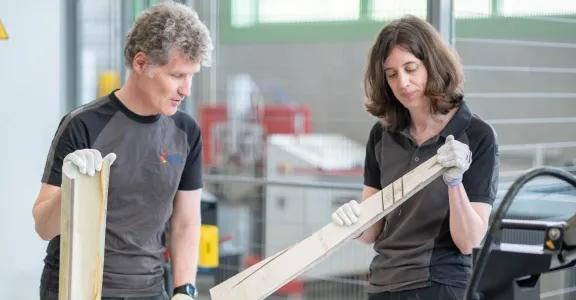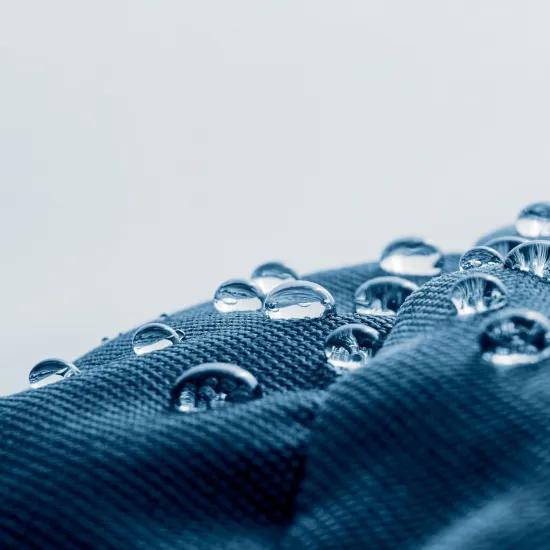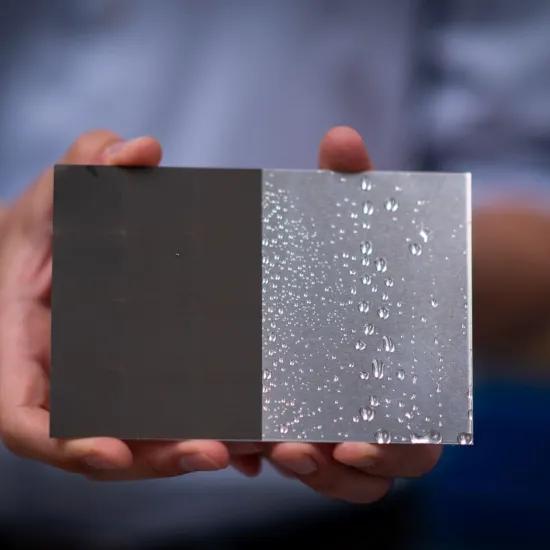The use of bio-based materials is considered an essential contribution to sustainable design of novel composites and coatings, but critical assessment of sustainable metrics is needed for independent and quantitative evaluation of the environmental impact. The role of biopolymers in a circular economy requires a holistic view: alternatively to fossil-based plastics, the bio-based materials can have a lower carbon footprint in addition to other favourable material properties and life-time.
Moreover, bio-based materials can be compatible with common recycling streams and sometimes offer the additional option for biodegradation. On the other hand, the impacts of material’s sourcing on agriculture and land use, or price setting are critical parameters to be taken into account.
The life-cycle-assessment offers a tool for making decisions in material selection, processing and end-of-life options in relation to selected criteria for green design. However, the transparency in input data, methodologies and calculations is critical in respect to the outcome. Therefore, good insight in the required level of detail is needed while comparing the outcomes between bio-based and fossil-based polymers. In particular for coating industries, both the paint formulation and a number of complex processing steps may introduce critical parameters that should be considered in the LCA approach.
On 18 October, Sirris and Centexbel, partners in the COOCK project BioCoat sponsored by Flanders Agency for Innovation and Entrepreneurship (VLAIO), will organise a webinar on the subject. We will welcome two renown experts as keynote speakers: Jan-Georg Rosenboom (Massachusetts Institute of Technology, USA) and Maude Jimenez (Université de Lille, France). Furthermore, Benoit Olbrechts, Manager Technology Scouting & IP Services at Sirris, will give a presentation.
Keynotes and presentation
Jan-Georg Rosenboom is a Chemical Engineer with a focus on designing polymers for people and the planet. As a postdoc in the Langer and Traverso Labs at MIT, he uses polymer chemistry to advance sustainable plastic technologies and create novel drug delivery devices against a variety of diseases. Besides that, he works with the MIT Climate and Sustainability Consortium (MCSC) and is a plastics sustainability consultant for several major companies. He is also a recent TEDx speaker: https://www.youtube.com/watch?v=2b20WnJAyP8
'Bioplastics in a circular economy' - Jan-Georg Roseboom, MIT
Bioplastics stand to contribute to more sustainable commercial plastic life cycles as part of a circular economy, in which virgin polymers are made from renewable or recycled raw materials. They can reduce carbon footprints into the carbon-negative realm and some offer biodegradation as an additional end-of-life pathway. But recycling of many has yet to be established and other environmental externalities, such as from farming, need to be taken into account. In this talk, we'll explore the benefits and trade-offs of bioplastics and some major plastics in general.
Maude Jimenez is Full Professor at Lille University (France) to develop surface treatments for flame retardant applications, but also for biomaterials, glass treatments and antifouling applications. She works on the design and understanding of mechanism of action of various surface treatments (coatings, plasma, layer-by-layer, sol-gel, etc.) and she is looking at potential solutions to overcome ageing issues and improve their environmental print.
'Life cycle assessment of multi-step versus one-step coating processes using oil or bio-based resins' - Maude Jimenez, Lille University
In this study, self-stratifying coatings were designed using silicone resins and oil or bio-based epoxy resins. The main parameters influencing the stratification process were investigated and revealed that the nature, surface energy and polarity of the resins, as well as the solvent volatility, curing temperature and nature of the cross-linking agent have an impact on the degree of stratification. Flame retardant agents were finally incorporated in the formulations without affecting the stratification. A comparative Life Cycle Assessment will be presented to quantify the environmental impact of the self-stratifying process using oil-based or bio-based resins compared to the conventional oil-based multilayer process.
'Patent inspiration for sustainable design with biopolymers' - Benoit Olbrechts, Sirris
Patent knowledge can contribute to the Sustainable Development Goals, as interpretation and research based on analytical patent analysis provides additional insight in developing technologies. The innovations in technological development are strongly supported by patenting at the very early stage of the technological life cycle. The life cycle of technologies comprise different stages from idea and conceptualization, towards basic research and development, demonstration and dissemination, market development and commercialization. The patent-based research provides an interdisciplinary tool at the border of technological feasibility, economic viability and legal freedom to operate.
Interested in joining us? Register here!
This webinar is an initiative by Sirris and Centexbel, partners in the COOCK project BioCoat, on the topic of bio-based coatings.







